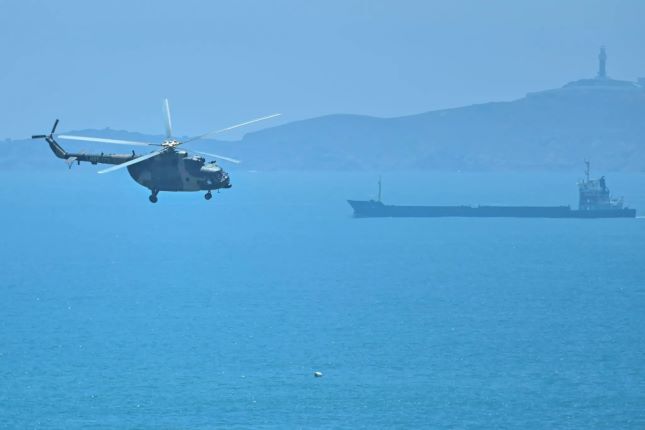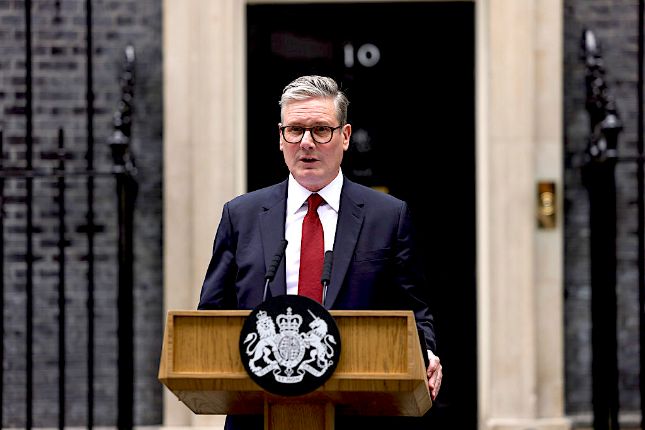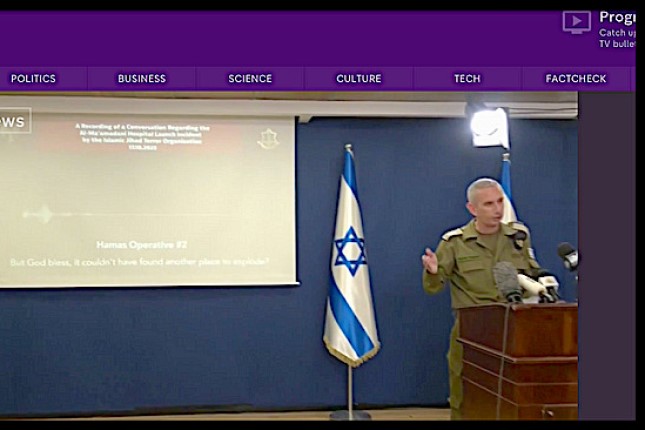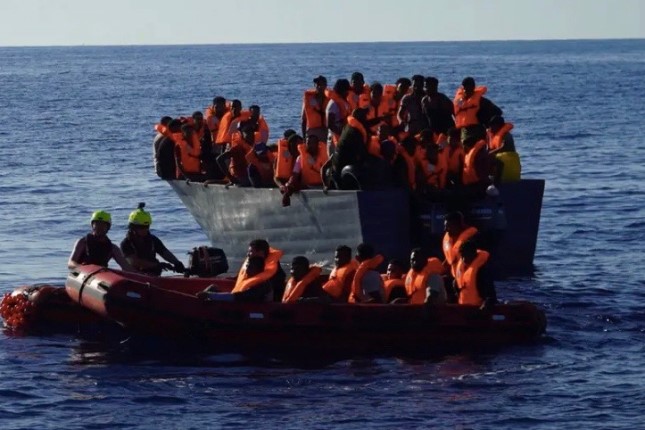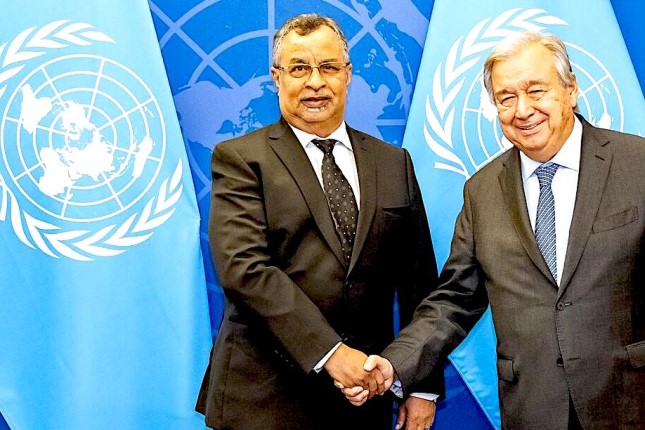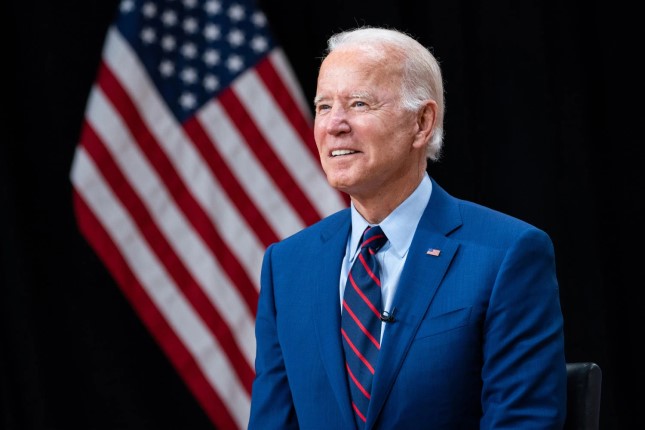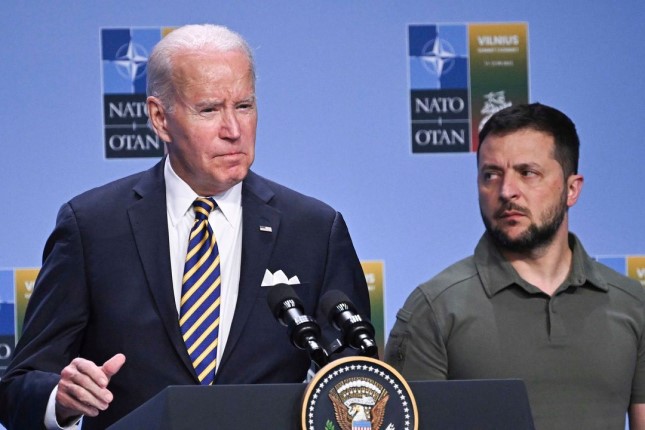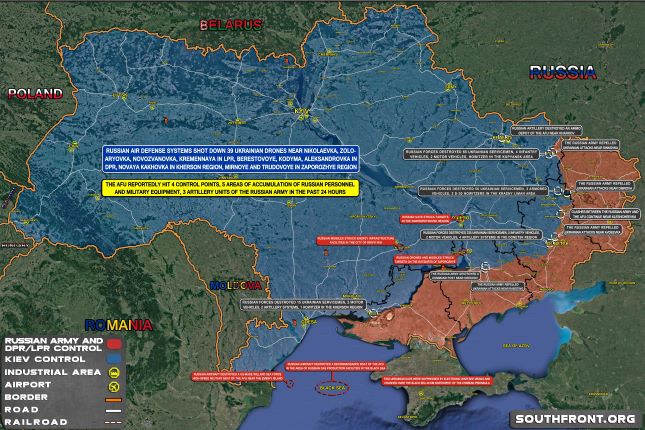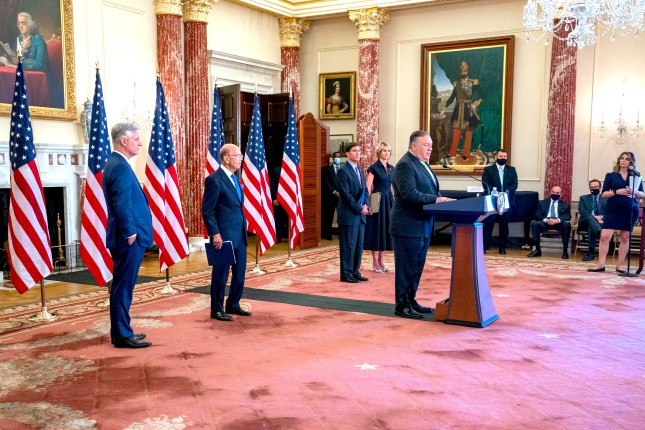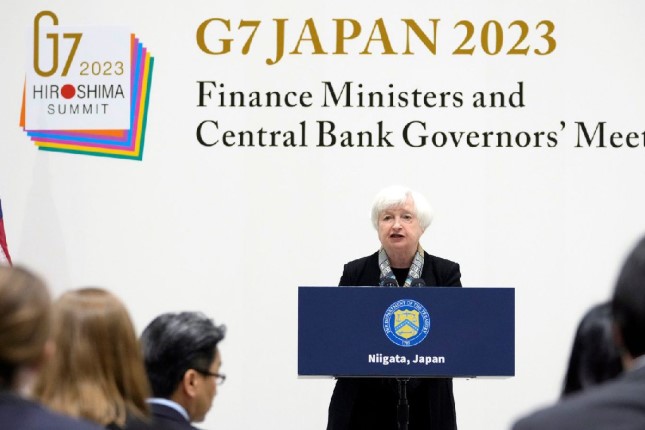On Saturday, China’s People’s Liberation Army (PLA) launched extensive air and sea drills around Taiwan after Taiwanese Vice President Lai Ching-te returned from a trip that included stops in the United States.
Lai, the frontrunner for Taiwan’s 2024 presidential election, visited New York on his way to Paraguay, one of the few countries that has formal diplomatic relations with Taipei. On his way back, Lai stopped in California, and he returned to Taiwan on Friday.
While Lai’s stops in the US were relatively low-key as he did not meet with any high-level US officials, China warned it would take measures in response, as tensions are soaring between the US and China over Taiwan.
The PLA’s Eastern Theater Command said the drills involved “jointly seizing maritime and airspace control, submarine search and anti-submarine operations in the waters and airspace to the north and southwest of Taiwan Island.”
“This is a serious warning against the collusion and provocation of the ‘Taiwan independence’ separatist forces and the external forces,” said Col. Shi Yi, spokesman for the Eastern Theater Command.
Taiwan’s Defense Ministry said that it detected 42 PLA warplanes and eight Chinese naval vessels. Twenty-seven of the PLA warplanes crossed the median line, an informal barrier separating the two sides of the Taiwan Strait that China used to avoid crossing.
The PLA began regularly crossing the median line after then-House Speaker Nancy Pelosi (D-CA) visited Taiwan in August 2022. Since her visit, China has kept up the military pressure on the island. According to a Brookings Institution poll conducted in January 2023, 62% of Taiwanese believe Pelosi’s visit made the island less secure.
The drills conducted on Saturday were smaller in scale than the Pelosi drills or the exercises the PLA conducted when Taiwanese President Tsai Ing-wen visited the US in April, likely because Lai did not meet with high-level US officials. When Tsai made the trip, she held talks with House Speaker Kevin McCarthy (R-CA). The meeting made McCarthy the highest-level official to host a Taiwanese leader on US soil since 1979, the year Washington severed diplomatic ties with Taipei to open up with Beijing.
China hawks in Congress argue that the US must “arm Taiwan to the teeth” to prevent a Chinese attack on the island. But Beijing’s actions and rhetoric make clear that the more the US increases military and diplomatic support for Taiwan, the more military pressure the island will face.
Photo: A Chinese military helicopter flies past Pingtan island, one of mainland China’s closest points to Taiwan © Hector Retamal/AFP
Source: Antiwar.
